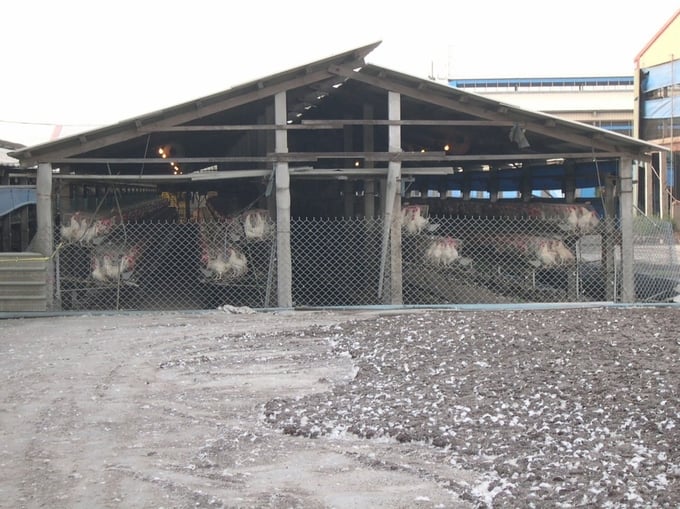May 21, 2025 | 06:50 GMT +7
May 21, 2025 | 06:50 GMT +7
Hotline: 0913.378.918
May 21, 2025 | 06:50 GMT +7
Hotline: 0913.378.918

Taiwan has an estimated 44 million laying hens. The COA estimates 30% of the laying hen population's egg production rate is too low. Lower numbers may be the main reason behind the egg shortage in recent months which has led to higher prices.
The government decided to freeze egg prices next week after a tense meeting between domestic egg producers and merchants on Saturday (March 18).
The Council of Agriculture (COA) communicated with the Poultry Association of Taiwan that it wanted to observe the impact of imported eggs on the market before allowing an upward price adjustment. In response to the price freeze, egg merchants threatened to suspend operations if a similar decision went into effect the following week (March 27-April 1).
The decision to freeze egg prices this week has left bulk and wholesale prices ranging between NT$45.5-55 (US$1.47-1.80) per Taiwanese catty (600 grams), according to UDN.
In response, Chiang Wen-chuan (江文全), deputy head of the COA's Department of Animal Industry, said the production and sale of eggs is not dependent upon a wholesale market like fruits and vegetables or pigs, so there will be fewer problems if such markets close. At present, egg prices are negotiated directly by egg producers and egg merchants, with the COA refraining from final pricing.
The government’s decision to import eggs from overseas markets to overcome the domestic shortfall brought some negative reactions among local merchants and producers. Lin Tien-lai (林天來), who leads an egg producers’ association in Taipei, is expected to visit the COA with a warning that he may suspend operations. However, according to Chiang, Lin’s threat was unilateral and did not involve other egg producers or merchants.
Hens taking time off
Taiwan has an estimated 44 million laying hens. The COA estimates 30% of the laying hen population's egg production rate is too low. Lower numbers may be the main reason behind the egg shortage in recent months which has led to higher prices.
Lower production may be due to traditional laying hen farms encountering a molting season where laying hens regrow their feathers and stop laying eggs for approximately one month beginning around Lunar New Year. The 2023 molting season led to much lower production than expected, per CNA.
According to Chiang, the egg production rate of active laying hens dropped from 70% to 52%. This decrease has been attributed to bird flu, cold weather, and poultry barns.
Industry insiders say there is little transparency regarding avian flu outbreaks, with some farms simply halting operations without reporting to authorities to protect upstream suppliers whose reputation may be affected by such outbreaks.
Reforming laying hen farms to improve efficiency may help Taiwan to reach an equilibrium between supply and demand, Chiang said. Traditional laying hen farmers are A-shaped, with protection only offered by an overhead roof. This means laying hens are susceptible to wind and rain, as well as disease.
The 44 million laying hens in Taiwan are distributed at more than 2,100 poultry farms. The COA believes that newer, better-designed laying hen farms overseas can achieve egg production of around 85-90%. As for new domestic laying hen farms, production can range between 72-80%.
The culprit behind the current egg shortage may be associated with traditional cage feeding and exposure to bad weather, as well as poor safety surrounding avian flu. Solving these problems will ultimately help shore up the domestic egg supply.
(TWN)

(VAN) Attempts to bring down the price of the Japanese staple have had little effect amid a cost-of-living crisis.

(VAN) Fourth most important food crop in peril as Latin America and Caribbean suffer from slow-onset climate disaster.

(VAN) Shifting market dynamics and the noise around new legislation has propelled Trouw Nutrition’s research around early life nutrition in poultry. Today, it continues to be a key area of research.

(VAN) India is concerned about its food security and the livelihoods of its farmers if more US food imports are allowed.

(VAN) FAO's Director-General emphasises the need to work together to transform agrifood systems.

(VAN) Europe is facing its worst outbreak of foot-and-mouth since the start of the century.

(VAN) The central authorities, in early April, released a 10-year plan for rural vitalization.